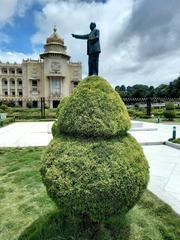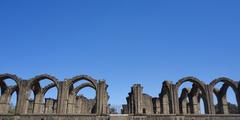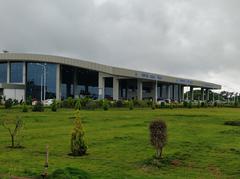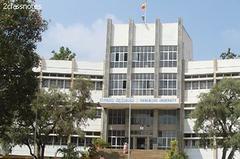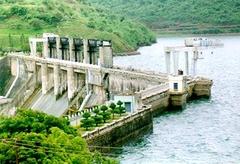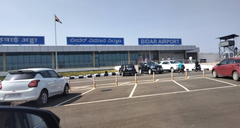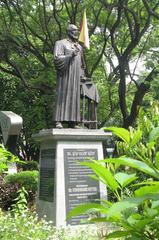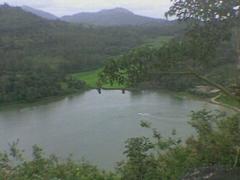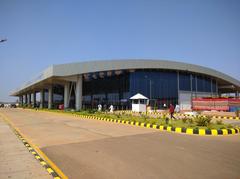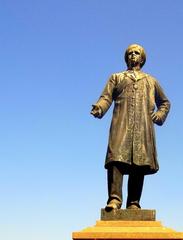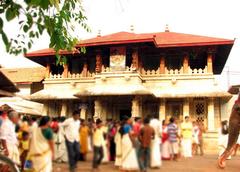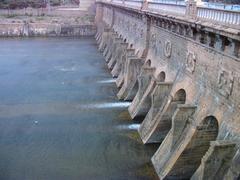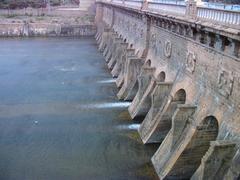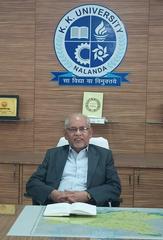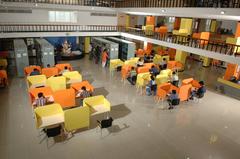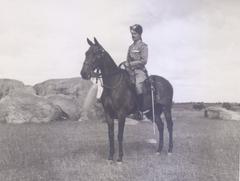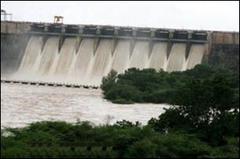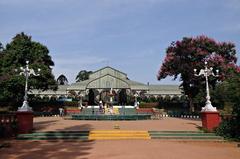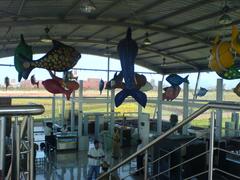Mecca Masjid Visiting Hours, Tickets, and Historical Significance in Karnataka, India
Date: 04/07/2025
Introduction
Mecca Masjid in Karnataka stands as a profound emblem of the region’s Islamic heritage and architectural splendor. While the renowned Mecca Masjid in Hyderabad, Telangana, is widely recognized for its monumental scale and 17th-century origins (TravelTriangle; YoMetro), Karnataka’s Mecca Masjids—particularly the one in Bijapur (Vijayapura)—embody centuries of religious devotion, cultural synthesis, and community engagement. This guide explores Mecca Masjid’s history, architectural features, cultural significance, and provides practical information on visiting hours, ticketing, and travel tips to help you make the most of your visit.
Table of Contents
- Introduction
- Historical Context and Foundation
- Architectural Features of Mecca Masjid Bijapur
- Religious and Cultural Significance
- Visiting Hours, Tickets, and Accessibility
- Visitor Experience and Practical Tips
- Nearby Attractions and Itinerary Planning
- Frequently Asked Questions (FAQs)
- Conclusion
- References
Historical Context and Foundation
Mecca Masjid’s origins in Karnataka are rooted in the region’s dynamic history of Islamic expansion, facilitated by Sufi missionaries, trade, and the patronage of local rulers. The mosque’s name reflects a spiritual connection to Mecca, the direction Muslims face during prayer (thepilgrim.co). Over centuries, these mosques have served not only as places of worship but also as focal points for community life and cultural preservation.
Architectural Features of Mecca Masjid Bijapur
Location and Layout
The Bijapur Mecca Masjid is set within a spacious, walled courtyard, enclosed by arched cloisters that provide privacy and tranquility. This layout is typical of South Asian mosques and reflects the traditional sahn (courtyard) design.
Structural Elements
- Cloisters and Arches: The perimeter features arched walkways supported by low piers, offering shade and contributing to the mosque’s balanced proportions.
- Façade and Entrances: The main façade is marked by five arched entrances, with the central arch accentuated by a decorative cusped outline.
- Dome and Terrace: A prominent hemispherical dome sits atop a terrace, enhancing acoustics and symbolizing the vault of heaven.
- Parapet and Chhatris: The two-tiered parapet is topped by domed chhatris at each corner, blending Indian and Persian influences.
Prayer Hall and Mihrab
The prayer hall, oriented toward Mecca, features a finely carved mihrab in the western wall. Notably, the mosque lacks a minbar (pulpit) as it was originally intended for royal women, whose prayers did not require sermons.
Materials and Decorative Work
The structure is crafted from local stone, with delicate carvings that exemplify Deccan Sultanate craftsmanship. The mosque’s robust construction has contributed to its preservation over centuries.
Gender-Specific Design
Unique among regional mosques, Mecca Masjid Bijapur was designed for women’s worship, emphasizing privacy and a more intimate scale.
Religious and Cultural Significance
Spiritual Importance
Mecca Masjid serves as a central venue for key Islamic practices, including Friday prayers (Jumu’ah), Eid celebrations, and Ramadan activities, fostering unity and reinforcing the egalitarian tenets of Islam.
Educational and Charitable Roles
The mosque supports madrasas, religious lectures, and charitable initiatives such as food distribution during Ramadan, playing a vital role in the social welfare of the community.
Socio-Political and Cultural Influence
While not as politically prominent as Hyderabad’s Mecca Masjid (The Hindu), Karnataka’s Mecca Masjids have been important venues for community dialogue and cultural preservation.
Visiting Hours, Tickets, and Accessibility
- Visiting Hours: Mecca Masjid in Karnataka typically welcomes visitors from early morning (around 5:00 AM) until late evening (around 9:00 PM). Hours may vary during festivals or special occasions; confirming locally is recommended.
- Tickets: Entry is free for all visitors. Donations for maintenance are welcome.
- Accessibility: The mosque features ramps and wide paths, but some areas have uneven stone flooring. Assistance is advisable for visitors with mobility challenges.
Visitor Experience and Practical Tips
Dress Code and Decorum
- Wear modest clothing covering shoulders and knees.
- Remove footwear before entering the prayer hall.
- Women may choose to cover their heads with a scarf.
Facilities and Amenities
- Ablution (wudu) areas are available.
- Restrooms are basic; carrying personal hygiene items is recommended.
- Shoe racks and seating areas are present.
Guided Tours and Local Insights
Local guides offer contextual tours detailing the mosque’s history and architecture. Booking through reputable operators is advised for an enriching experience.
Photography Guidelines
- Photography is allowed, but avoid photographing worshippers during prayers.
- Refrain from flash and loud equipment.
- Respect signage regarding restricted zones.
Safety and Security
- Security checks may be in place at the entrance.
- Carry only essentials; avoid large bags.
Health and Comfort Tips
- Stay hydrated; bring a water bottle.
- Opt for comfortable clothing and footwear.
- Plan visits during cooler months (November–February) for optimal comfort.
Cultural Etiquette
- Maintain silence and reverence inside prayer areas.
- Non-Muslim visitors are welcome but should avoid entering the main prayer hall during prayer times.
- Engage respectfully with staff and worshippers.
Nearby Attractions and Itinerary Planning
Mecca Masjid’s central location in Karnataka makes it an ideal starting point for exploring other historical sites:
- Gol Gumbaz: Renowned for its massive dome and whispering gallery.
- Ibrahim Rauza: A beautiful tomb and mosque complex.
- Local Bazaars: Experience traditional crafts and cuisine.
Combining these sites offers a comprehensive view of the region’s rich heritage.
Frequently Asked Questions (FAQs)
Q: What are the Mecca Masjid visiting hours?
A: Generally from 5:00 AM to 9:00 PM daily, with possible variations during festivals.
Q: Is there an entry fee or tickets required?
A: Entry is free; no tickets are required.
Q: Are guided tours available?
A: Yes, local guides offer tours. Inquire in advance or at the site.
Q: Is the mosque accessible for people with disabilities?
A: Most areas are accessible, but some uneven surfaces may require assistance.
Q: What is the dress code?
A: Modest attire covering shoulders and knees. Shoes must be removed in prayer areas.
Q: Are women allowed to participate?
A: Yes, with designated spaces for women, especially during major religious events.
Conclusion
Mecca Masjid in Karnataka is more than a place of worship—it is a living testament to the region’s Islamic heritage, architectural artistry, and vibrant community life. With free entry, accessible visiting hours, and profound cultural significance, the mosque welcomes all who seek to explore its history and spiritual ambiance.
To plan your visit, always check for the latest timings and local events. For more detailed guides, updates, and virtual resources, consider downloading the Audiala app and following cultural platforms dedicated to Karnataka’s heritage.
References
- Mecca Masjid in Hyderabad: Historical and Architectural Guide, 2025, TravelTriangle
- Mecca Masjid Hyderabad Travel Guide, 2025, YoMetro
- Mecca Masjid Bijapur, Wikipedia
- Architectural Elements and Features of a Mosque, Prayers Connect
- Mecca Masjid: A Socio-political Religious and Anti-colonial Sanctuary, 2023, The Hindu
- Why is Mecca Important to Muslims?, The Pilgrim
For visual references, include images of Mecca Masjid’s architecture and cultural events, using descriptive alt tags like “Mecca Masjid Karnataka visiting hours” and “Mecca Masjid tickets” for SEO benefit.

